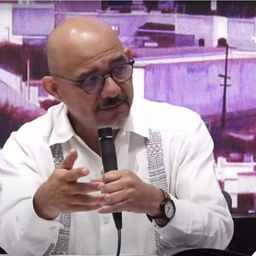The crossroads of memories. Resistance and recoveries of the collective working memory in the north of Mexico.
My Session Status
What:
Paper
When:
9:00 AM, Tuesday 30 Aug 2022
(20 minutes)
Where:
UQAM, pavillon J.-A. De Sève (DS)
- DS-R515
The purpose of this work is to show empirical cases where minority groups have been able to rescue and represent the collective memory of ex-workers in a framework of hegemonic discourses in northern Mexico. Industrial heritage is a field of tensions where the exercise of economic and political power has dominated the decisions of what and how to represent the inheritance of work and industrial activity. In Mexico, the valuation of tangible heritage over intangible heritage has dominated, which is reflected in the invisibility of collective and historical memory. Fortunately, there are cases where, despite the dominant discourses, creative ways are emerging from different disciplines to rescue and represent the memory of the labor sectors. An emblematic case in northern Mexico is the Fundidora Park in the city of Monterrey in the state of Nuevo León, where the first integrated steel company in Latin America operated (1900-1986). Today it is an industrial archeology park where there has
been no place for the memory of ex-workers. However, subjects and actors such as organized ex-workers, visual artists, academics and activists, have promoted the recovery of memory through the oral history of the working-class experience, life in working-class neighborhoods, visual artistic representation, transmission to new generations of what that steel company meant for the city. To prepare this work, we have resorted to a review of the park's management policy, interviews with ex-workers, artists and academics, as well as the visual record of the representations of memory from minority sectors. The main concepts for analysis are collective memory, historical memory, place of memory, and ideology.
